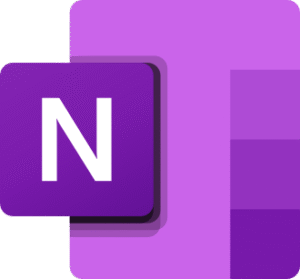
Introduction
Office management skills, such as workflow management, team coordination, and the use of digital tools, are essential for maintaining a productive and efficient workplace. These essential skills enable administrative professionals to effectively handle day-to-day operations, coordinate team efforts, manage office resources, and maintain seamless communication across departments. In modern organizations, office managers are not just support staff — they are strategic contributors who help ensure business continuity, staff productivity, and customer satisfaction.
Whether you’re overseeing schedules, supervising office staff, managing budgets, or handling documentation, having the right office management skills is critical. These competencies not only enhance organizational performance but also contribute to a healthier, more structured work environment where everyone knows their roles and goals.
In this article, we explore seven must-have office management skills that are essential for thriving in today’s fast-paced and constantly evolving work environment. Mastering these skills can set you apart as a competent and reliable administrative professional.
7 – Office Management Skills
1. Organizational Mastery
Being organized is more than just keeping a tidy desk. It’s about effectively managing files, schedules, and workflows. Professionals with this skill reduce errors, improve efficiency, and build trust in operations.
For example, tools like Microsoft OneNote help keep notes and meeting minutes organized in one place. Google Drive allows easy sharing and storage of documents, ensuring files are accessible and secure. Meanwhile, Trello is great for managing tasks and project timelines using visual boards, helping teams stay on track.


2. Strong Communication Skills
How to Write Professional Emails?
Clear and professional communication is essential for managing teams, working with vendors, and maintaining harmony in the workplace. It includes both written and verbal communication.
3. Time Management Expertise
Time is money. Office managers must prioritize tasks, schedule effectively, and help teams meet deadlines without burnout.
4. Proficiency in Administrative Tools
Office professionals should be fluent in tools like Microsoft Excel, Microsoft Word, and online collaboration platforms. Digital fluency boosts productivity and reduces administrative workload.
For instance, Microsoft Excel helps administrators manage data more efficiently through features like formulas, pivot tables, and automated templates. This enables faster reporting, better organization of records, and accurate tracking of office expenses or inventory.
5. Problem-Solving Abilities
Unexpected challenges arise every day in the office — from tech malfunctions and missing documents to scheduling conflicts and communication breakdowns. Office administrators and managers must be able to think critically under pressure, assess situations quickly, and implement practical solutions that minimize disruption.
Strong problem-solving skills not only help maintain smooth daily operations but also show leadership and reliability. For example, if a meeting room gets double-booked or a key report is delayed, an effective office administrator can immediately reorganize the schedule or delegate tasks to ensure deadlines are met. The ability to remain calm, assess the options, and take initiative is what sets high-performing professionals apart.
6. Team Leadership & Coordination
Strong team leadership is a cornerstone of effective office management skills. Even in administrative roles, leadership plays a vital role in ensuring smooth day-to-day operations. Office managers are often responsible for leading small administrative teams, supervising junior staff, or even coordinating projects that span across multiple departments.
To be successful, office professionals must possess the ability to motivate team members, set clear expectations, and delegate responsibilities efficiently. Leadership isn’t just about giving instructions — it’s about inspiring collaboration, building trust, and guiding the team toward shared goals.
In high-performing offices, strong leaders cultivate a positive work environment, resolve conflicts quickly, and keep communication open and honest. They also serve as role models, demonstrating accountability and professionalism.
Whether managing a reception team, coordinating schedules across departments, or ensuring project deadlines are met, leadership and coordination skills are essential for any administrative professional aiming for long-term success.
7. Attention to Detail
Accuracy in reports, communications, and scheduling avoids costly mistakes. Office managers must have a sharp eye for detail to ensure professionalism and compliance.
The Role of Office Management Skills in the Future Workplace
With the growth of hybrid and remote work, office management skills are evolving. Skills like digital communication, online scheduling, and virtual team leadership are now critical for success.
Employers look for candidates who are flexible, tech-savvy, and excellent communicators. These traits are no longer “nice-to-have” — they’re required for operational success.
Conclusion
Developing and refining your office management skills is essential to stay competitive and efficient in the modern workplace. Whether you’re managing an entire team or supporting daily tasks, these skills help you thrive in any business environment.
Start with small improvements — organize better, communicate clearly, and adopt new tools. The results will speak for themselves.